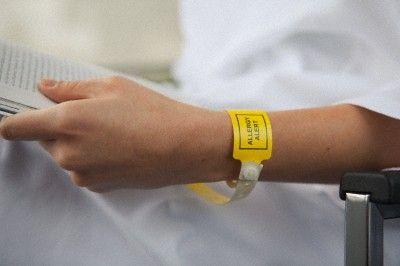
Are nurses exposed to more health hazards than doctors?
In general, while working in a hospital one can be exposed to dangerous contagious diseases. This is why nurses and doctors wear protective hear. They make sure they sanitize and dispose of gloves and other used materials. Such as cotton wool and syringes. Being hygienic is very important. As all the patients go in and out of the hospital for various reasons, it is always useful to be cautious to exposure and protect yourself accordingly.
Another thing is to ensure you have taken all the proper precautionary measures. Including taking the right medication that is required of you. More so vaccines and other preventative medication as well as supplements and vitamins. You can never be too healthy. Taking care of yourself is very important. Neglecting your own health while taking care of others can be detrimental for you both. You get exhausted and have bad moods. This affects your working conditions and even the recovery of the patient, who may get stressed by their attending nurse.
More importantly, the sanitation levels of the hospital need to be at par and reach the recommended standards as per the advisory bodies for inspection. Sanitation is so important for hospitals especially because they also deal with biological waste. This is what comes from surgical processes and the likes. Nurses do spend a lot more time with patients than the doctors do. They administer medication and talk to patients. Attend to their needs by bringing meals and even engage in physical activity through physical therapy and walks for the elderly.
Also see: Best Nursing Essay Writing ServicesThey also take their time to bond with patients who feel lonely or spend a lot of time in hospitals and caregiving homes. Therefore, it is possible that they could be exposed to more health hazards than doctors. After all the main job of the doctor is to check the patients and provide a prescription which is filled either by family or hospital staff which is mostly the nurses. They also keep the rooms and beddings of patients clean. This is by changing the bedding regularly, airing the rooms and cleaning surfaces and the floors. They may also handle the bathroom cleanliness for some special patients, although typically most hospitals and caregiving institutions have a cleaning service for this job.
However, doctors are also at risk. They must examine patients while they are still undiagnosed and the illness poses a high infection to them. They must also put on self-protective garments like lab coats, gloves and a mouth covering mask. When they get into a surgical room, also known as the theatre they also don coverings for their shoes and wear the recommended ‘scrubs’. This is not only for their protection but for the patients too so that they do not cause more harm to the sick by contaminating a sensitive room.
Doctors also spend time with patients who have rare or unknown diseases including dangerous viruses. Although they may take precaution, it is not always conclusive. During a recent Ebola epidemic, an American doctor contracted a mild strain of the disease after his visit to West Africa where he was treating a patient. Due to his exposure, he needed emergency treatment and was flown back to the united states for a check-up and a quick recovery thereafter. The strain was contained and the doctor medicated to counter the effects.
This is not the only case, doctors are prone as much as their nurses to contract hazardous diseases, given the conditions. On a general note, improving the working conditions for nurses can subside the cases for exposure to infectious diseases. When there are nursing shortages, this an contribute to contracting infectious diseases and also spreading them. More so, due to staffing shortages, patients are also at risk for healthcare-associated infections because they are dealing with a small number of nurses. The same nurses are the ones who are suffering from infections, and it becomes a cycle that needs to change.

